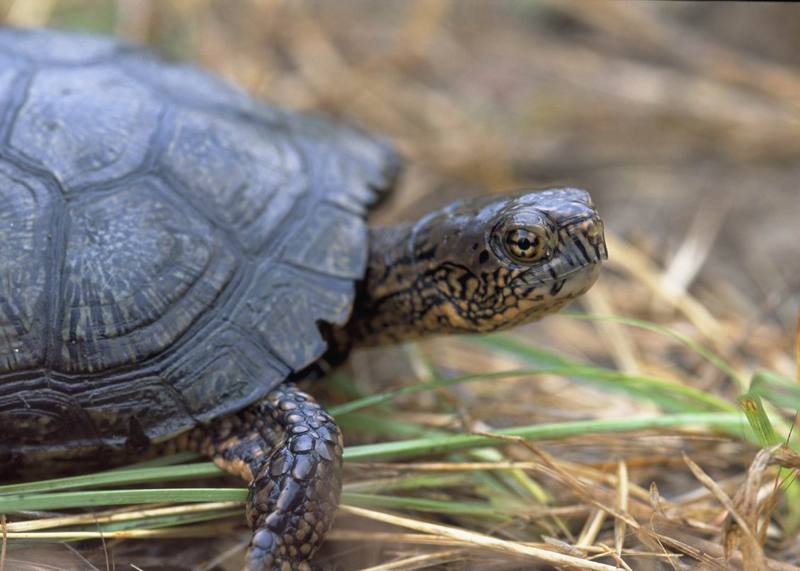|
Eastern Box Turtle (Terrapene carolina) (캐롤라이나상자거북)
| 제목: | Eastern Box Turtle (Terrapene carolina) (캐롤라이나상자거북)
| | 올린이: | Phoby (phoby@hanafos.com)
| |

| 해상도: 1128x805
파일크기: 103921 Bytes
촬영일: 2004:12:02 11:43:26
등록시간: 2004:12:02 11:37:37
|
From the U.S. Fish and Wildlife Service's online digital media library.
Check http://images.fws.gov/ for higher quality version.
Metadata
Title: Eastern Box Turtle
Alternative Title: Terrapene carolina
Creator: Hagerty, Ryan
Source: WV-General 9- 350
Publisher: U.S. Fish and Wildlife Service
Contributor: NATIONAL CONSERVATION TRAINING CENTER-PUBLICATIONS AND TRAINING MATERIALS
Language: EN - ENGLISH
Rights: (public domain)
Audience: (general)
Subject: reptile, turtle, West Virginia, pet trade
Description
Abstract: Box turtles can be found in a vast variety of habitats from grassy fields to forests. During dry, hot weather, box turtles go to wetland areas and ponds to bury themselves in the cool mud. They spend much of their time buried in leaves and dirt in the forest. Box turtles eat many different plants such as berries and mushrooms. They also eat earthworms, slugs, snails, and insects. Like other reptiles, box turtles must hibernate during cold, winter weather. They burrow deep under the soil and leaves, sometime in October, and usually emerge in April or early May. When disturbed or frightened, most box turtles will pull in their head and legs and tightly close the shell, remaining hidden until the threat of danger is past. The shell is extremely tough and almost impossible to pry open when closed. Young box turtles do not develop the hinge for closing their shell until they are about 4 to 5 years old. Female box turtles seek out sunny areas where they lay their eggs in the warm soil by excavating a cavity with their hind feet. Although box turtles are active during daylight hours, the females often use the protective cover of darkness to lay their eggs. After laying from 3 to 6 eggs, the nest is covered with soil and the eggs left to hatch on their own. Box turtles usually lay their eggs in western North Carolina during June and July. Hatching takes between 2 and 3 months. Sometimes if the turtles hatch late in the season, they may overwinter in the nest and then emerge the following spring. Due to their small size and lack of the bright coloration found on the adults, young box turtles are seldom seen. Adult box turtles often live 30 to 40 years or more in the wild and some are believed to have reached 100 years or more. Although they are still common in many areas, box turtles have declined over much of their range, probably due largely to habitat destruction by man. Many box turtles are killed as they cross our highways. Dogs sometimes catch box turtles and chew their shells, resulting in injury and eventual death to the turtle. Many are also hit by lawn mowers as the turtles hide in tall grass and weeds. Box turtles are popular as pets and overcollecting for the pet trade can also seriously reduce their numbers. In spite of these threats, box turtles can often survive close to man if suitable pockets of habitat exist. Because of it's popularity and well-known status, the Eastern Box Turtle was chosen as North Carolina's official state reptile in 1979.
Date
Available: September 03 2004
Issued: July 20 2004
Modified: September 03 2004 |
^o^
동물그림창고 똑똑전화 누리집
^o^
|
|